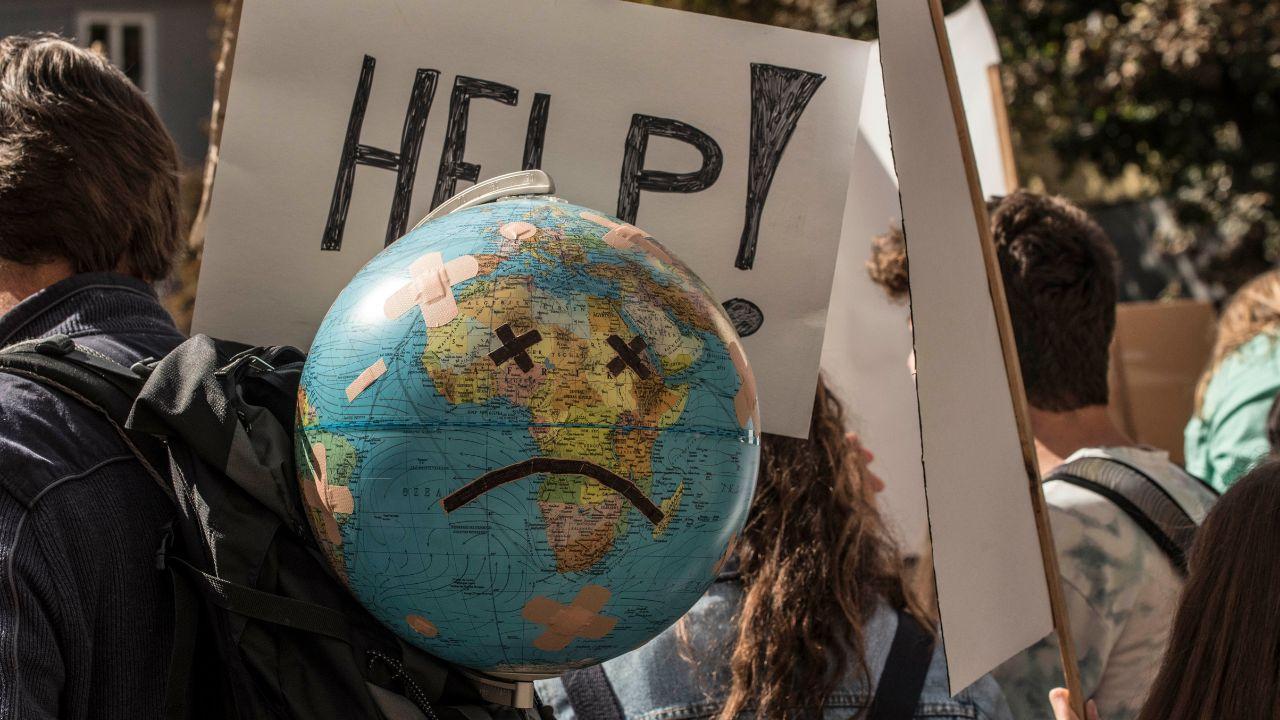
Post by : Vansh
In today’s rapidly evolving world, few issues are as urgent and pervasive as climate change. While headlines often focus on extreme weather events or scientific debates, the true impact of climate change is increasingly felt in our everyday lives. From the air we breathe to the food we eat and the cities we inhabit, climate change quietly but profoundly reshapes our daily routines, health, and long-term well-being. Understanding this silent crisis is essential if we hope to adapt and safeguard our future.
One of the most immediate ways climate change affects daily life is through changing weather patterns. Heatwaves, erratic rainfall, and unexpected storms are becoming more common, disrupting work schedules, transportation, and even leisure activities. For instance, farmers face uncertainty in planting and harvesting seasons due to unpredictable rains, while city dwellers struggle with heatwaves that strain electricity and water supplies. Even commuting can become hazardous, as flooding or icy conditions interfere with roads and public transport. Over time, these small disruptions accumulate, impacting productivity, mental health, and overall quality of life.
The silent crisis of climate change extends far beyond environmental concerns—it is a public health issue. Rising temperatures contribute to heat-related illnesses, while extreme weather events increase the spread of waterborne and vector-borne diseases. Air pollution worsens as wildfires and industrial emissions intensify, leading to respiratory problems and cardiovascular conditions. Vulnerable populations, including the elderly, children, and those with pre-existing health conditions, are disproportionately affected. Health systems worldwide are increasingly tasked with responding to climate-driven emergencies, highlighting the intersection of environmental sustainability and human well-being.
Everyday life is closely tied to the stability of essential resources, and climate change threatens this balance. Agricultural production suffers from droughts, floods, and shifting climatic zones, leading to crop failures and rising food prices. Water scarcity is becoming a reality for millions, with reduced rainfall and shrinking freshwater sources impacting both rural and urban communities. These pressures affect not only what we eat and drink but also economic stability and social cohesion. Sustainable water management and resilient agricultural practices are critical strategies to mitigate these challenges and ensure resource security for future generations.
Cities are at the forefront of experiencing the effects of climate change. Rising temperatures create urban heat islands, where concrete and asphalt amplify heat, making life uncomfortable and sometimes dangerous during heatwaves. Flooding from intense storms and rising sea levels threatens infrastructure, transportation networks, and housing. Urban planners are now faced with the challenge of redesigning cities to withstand these pressures. Green spaces, improved drainage systems, and climate-resilient architecture are no longer optional—they are essential to ensure that daily life continues smoothly despite changing environmental conditions.
The ripple effects of climate change on everyday life extend to social and economic spheres. Job security can be threatened by climate-related disruptions in agriculture, tourism, and manufacturing sectors. Insurance premiums rise as natural disasters become more frequent, and housing affordability is affected by areas prone to floods, fires, or storms. Social inequities are often magnified, with low-income communities facing greater exposure to environmental risks while having fewer resources to adapt. Addressing these challenges requires coordinated policies that combine climate adaptation with social justice, ensuring that resilience reaches all members of society.
Adapting to climate change in everyday life is both an individual and collective responsibility. At the personal level, people can reduce their carbon footprint through energy-efficient homes, sustainable transportation choices, and mindful consumption. Communities can invest in local food systems, renewable energy, and emergency preparedness programs. Governments and organizations play a vital role in implementing policies that enhance infrastructure resilience, protect natural ecosystems, and support vulnerable populations. Technology and innovation also offer solutions, from climate monitoring systems to smart cities that optimize resource use and mitigate environmental stress.
Raising awareness about the silent crisis of climate change is crucial to fostering proactive behavior. Educational programs can teach individuals and communities about sustainable practices, climate-resilient agriculture, and disaster preparedness. Media campaigns, public forums, and community workshops help demystify climate science, making it accessible and actionable. By embedding climate consciousness into daily routines, people are better equipped to respond to challenges and participate in collective efforts to reduce environmental impact.
The silent crisis of climate change is not an insurmountable threat, but it requires urgent and consistent action. By integrating sustainability into everyday life, from reducing waste to supporting renewable energy, we can mitigate its effects and build resilience. Collaboration between individuals, communities, businesses, and governments is essential. Every choice, from what we eat to how we commute, contributes to the broader effort to navigate this crisis. The goal is not only survival but the creation of a world where human activity and environmental health coexist harmoniously.
The information in this article is intended for educational and informational purposes only. Readers are encouraged to consult experts or authorities for guidance regarding climate-related decisions. Published by MiddleEastBulletin news network.










Curry Powers Warriors to Nail-Biting 109-108 Victory Against Spurs
Stephen Curry's 49 points propel the Warriors to a dramatic 109-108 NBA Cup triumph over the Spurs,

India Advances to Semi-Finals After Thrashing USA in Women’s Blind T20 World Cup
India secured a dominant ten-wicket victory over the USA, advancing to the semi-finals in the Women’

South Africa's Early Advantage as India Struggles on Day Two
On Day Two, India reached 138-4 as South Africa took three early wickets, complicating matters with

Kenta Nishimoto Defeats Lakshya Sen in Japan Masters Semifinal
Lakshya Sen's journey in the Japan Masters ends after losing to Kenta Nishimoto 19-21, 21-14, 12-21

Kenta Nishimoto Defeats Lakshya Sen in Japan Masters Semifinals
Lakshya Sen's run at the Japan Masters concludes with a loss to Kenta Nishimoto in the semifinals, 1

Major IPL Trade: Jadeja Joins Royals as CSK Signs Samson
In a significant IPL trade, CSK has acquired Sanju Samson from Rajasthan Royals in exchange for Ravi